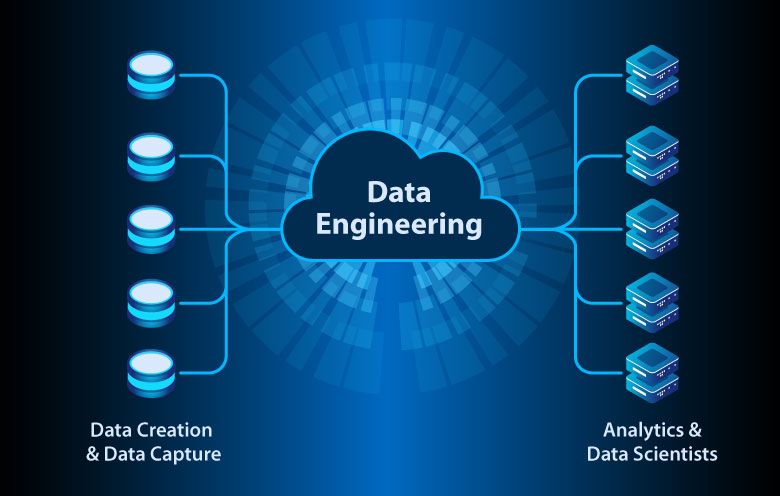Feeling overwhelmed with endless topics and uncertain where to start? You’re not alone. Data Engineer interview preparation can be challenging, but a clear, structured roadmap can help you tackle those pain points head-on and boost your confidence. Here’s an engaging guide to help you navigate your journey—from day one to interview day.
Overcoming Common Interview Prep Pain Points
- Topic Overload: With countless subjects like data modeling, ETL processes, big data frameworks, and behavioral questions, it’s easy to feel lost.
- Lack of Structured Guidance: Without a clear plan, you might spend too much time on one area while neglecting another.
- Time Management: Balancing preparation with your daily routine can be stressful.
- Insufficient Real-World Practice: Simulating real data engineering scenarios is challenging without the right tools.
- Feedback Gaps: Limited feedback may slow your progress, and imposter syndrome can sap your confidence.
Your 4-Week Preparation Roadmap
A dedicated, week-by-week plan can turn chaos into clarity. Here’s a suggested 4-week timeline that helps you cover all the essential areas for Data Engineer interviews.
Week 1: Build Your Foundation
Focus: Core Data Concepts & Basic SQL
Daily Goals:
- Day 1-2: Review core database concepts, including relational models, normalization, and data integrity. Strengthen your understanding of SQL fundamentals such as SELECT queries, JOINs, filtering, and aggregation.
- Day 3-4: Brush up on basic programming skills using Python or Scala, focusing on data manipulation and scripting fundamentals.
- Day 5: Learn data modeling principles and practice designing entity-relationship diagrams for various business scenarios.
- Day 6: Work on small SQL exercises and basic coding challenges to reinforce your querying and programming skills.
- Day 7: Reflect on your learnings and use our Interview Question Generator for foundational practice questions.
Tip: Build a strong foundation by balancing theoretical concepts with hands-on SQL and coding practice.
Week 2: Dive into ETL Processes & Big Data Fundamentals
Focus: Data Pipelines, ETL, and Big Data Tools
Daily Goals:
- Day 1-2: Study the concepts of ETL (Extract, Transform, Load) and data ingestion methods. Understand the challenges of data cleaning, transformation, and integration.
- Day 3: Learn about big data frameworks such as Hadoop and Apache Spark, and understand how they process and analyze large datasets.
- Day 4: Practice designing and implementing basic data pipelines using open-source tools or cloud services.
- Day 5: Explore data storage solutions including data lakes and data warehouses, and understand their use cases.
- Day 6: Work on mini-projects or exercises that simulate real-world data ingestion and transformation scenarios.
- Day 7: Reflect on your progress and simulate interview questions on ETL processes using our Interview Question Generator.
Tip: Balance your learning with both theoretical understanding and practical applications to build a robust data pipeline mindset.
Week 3: Master Advanced Data Engineering Concepts
Focus: Data Warehousing, Distributed Systems, & Performance Optimization
Daily Goals:
- Day 1: Study advanced data warehousing concepts, including star and snowflake schemas, and understand the differences between OLAP and OLTP systems.
- Day 2: Learn about distributed computing principles and how they apply to data processing in a cloud environment.
- Day 3: Explore performance tuning techniques for SQL queries and big data processing—learn about indexing, partitioning, and caching strategies.
- Day 4: Understand data governance, security, and compliance aspects critical for managing large datasets.
- Day 5: Work on a case study or mini-project that involves designing a scalable data architecture integrating on-premise and cloud-based solutions.
- Day 6: Practice whiteboard sessions to articulate your system design and performance optimization strategies.
- Day 7: Summarize your learnings and prepare a mock presentation on your advanced data engineering approach.
Tip: Use whiteboard sessions to clearly explain your design decisions and the trade-offs in your data processing architecture.
Week 4: Polish Your Behavioral & Soft Skills
Focus: Behavioral Interviews, Portfolio Review, & Mock Sessions
Daily Goals:
- Day 1: Prepare your portfolio by reviewing past projects, case studies, or lab exercises related to data engineering. Be ready to discuss your design choices and outcomes.
- Day 2: Outline key experiences using the STAR method (Situation, Task, Action, Result) tailored to your data engineering challenges.
- Day 3: Record yourself answering common behavioral and technical questions to identify areas for improvement.
- Day 4: Conduct mock interviews focusing on both your technical expertise and soft skills.
- Day 5: Seek constructive feedback from peers or mentors, and refine your responses.
- Day 6: Practice articulating your problem-solving process, how you design efficient data pipelines, and your approach to troubleshooting data issues.
- Day 7: Reflect on your progress, relax, and boost your confidence with final rounds of mock sessions using our Interview Answer Generator.
Tip: Clear and confident communication of your technical and soft skills is crucial to stand out during your interview.
Bringing It All Together
By following this roadmap, you’re not only addressing the common pain points of interview preparation but also ensuring that every aspect of your Data Engineer interview is covered. Remember:
- Break It Down: Tackle one component at a time—don’t try to master everything in one go.
- Stay Consistent: Even short, focused sessions add up over time.
- Use the Right Tools: Leverage interactive tools like our Interview Question and Interview Answer Generators to simulate real interview conditions and receive valuable feedback.
- Believe in Yourself: Everyone faces challenges; your dedication and structured plan will set you apart.
Start your journey today, and turn every challenge into an opportunity for growth. With clear steps and the right mindset, your dream role as a Data Engineer is well within reach!
Happy prepping, and here’s to your success!




